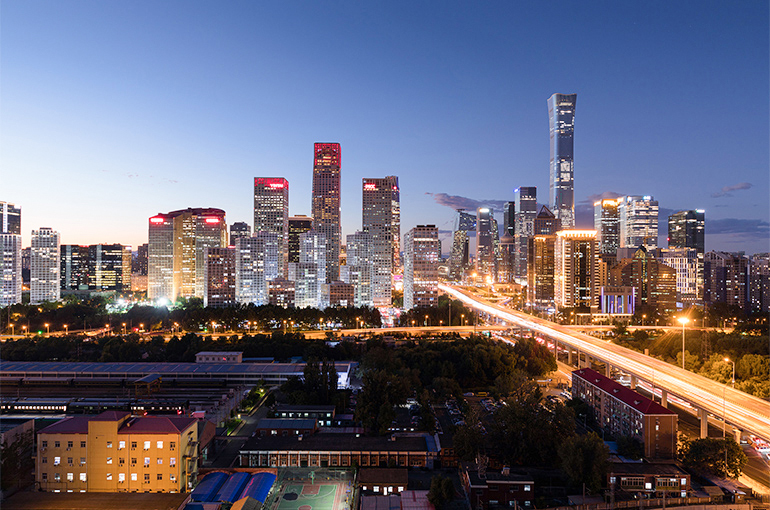 Beijing Ranks Sixth Among World's Top Workcation Cities
Beijing Ranks Sixth Among World's Top Workcation Cities(Yicai) Aug. 13 -- Beijing ranked as the world's sixth-best workcation destination, outperforming remote workers' traditional favorites such as Paris and Rome, with the Chinese capital city's world-class infrastructure and exceptional living standards continuing to lift its appeal.
Beijing scored 87 out of 120 points in the third annual Work from Anywhere Barometer, released by the International Workplace Group today. The report evaluated 40 cities worldwide across 12 criteria, including infrastructure, connectivity, and lifestyle factors, with Beijing excelling in transportation, sustainability, and proximity to nature.
Beijing's extensive metro network, spanning 29 lines with 10 more under construction, received high marks. In addition, its environmental initiatives have yielded significant results, having 290 days of good air quality last year after PM2.5 levels dropped 66 percent since 2013, resulting a 9 to 10 mark for sustainability.
"Beijing's ranking reflects China's broader improvements in urban quality of life," Edward Hu, country manager at IWG China, told Yicai. "The city's smart infrastructure, environmental governance, and streamlined policies for international talent have created an attractive ecosystem for global professionals."
The number of international arrivals in Beijing surged 57 percent to 1.46 million in the first four months of this year from a year earlier, according to official figures. The city's initiative to attract 500 global food brands by the end of this year has further enhanced its appeal among remote workers.
IWG's latest research highlighted that 78 percent of workers consider workplace flexibility a key factor when searching for a new job, while 87 percent report improved productivity with location-flexible arrangements.
Tokyo was named the world's top workcation city, while Seoul ranked fourth and Singapore placed 15th. The rankings reflect Asia's growing influence in the global flexible working landscape.
Established in 1989, IWG is the largest flexible workspace provider worldwide and has brands including Regus, Spaces, HQ and Signature, operating in more than 4,000 locations in over 120 countries and serving 83 percent of Fortune 500 companies. It also has a significant presence in several big Chinese cities amid a growing demand for hybrid work solutions.
Editor: Martin Kadiev